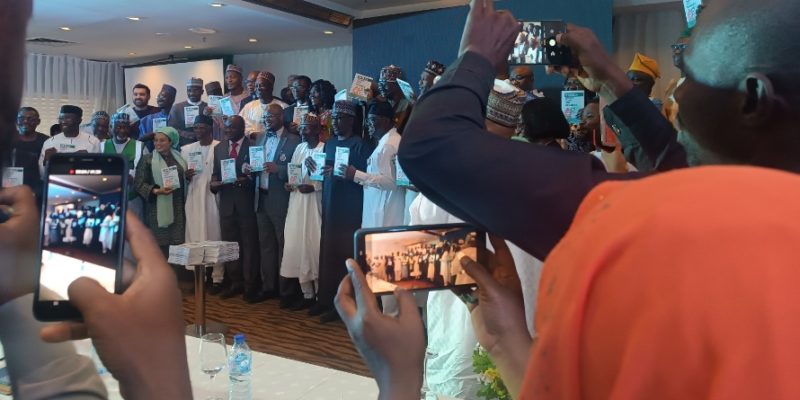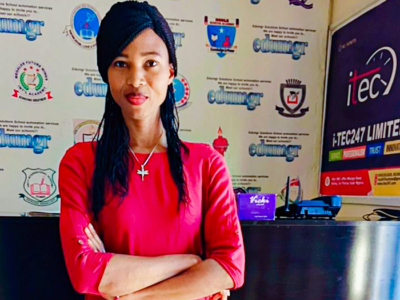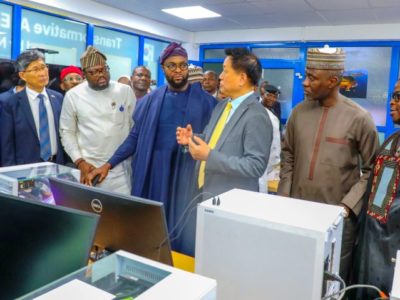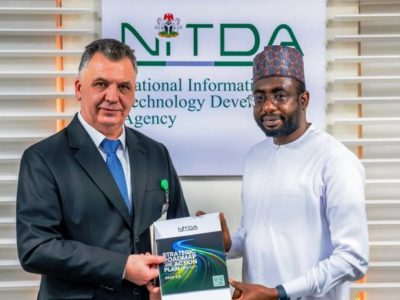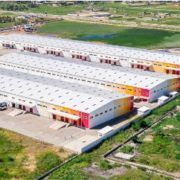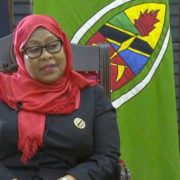By Jeremiah Unom, Abuja
About 18 higher institutions and 20 micro, small and medium enterprises (MSMEs) are first-phase beneficiaries of the Federal Government’s Provision of Broadband Infrastructure for MSMEs and educational institutions across the country as well as the distribution of ePads at an event in Abuja Thursday that also featured the public presentation of the book ‘Skills Rather than Just Degrees’ authored by Minister of Communications and Digital Economy, Professor Isa Ali Ibrahim Pantami.
Each of the institutions would have limitless access to broadband infrastructure valued in excess of N400 million to significantly impact positively on learning and research. The initiative will help to kit up MSMEs allowing them to improve on their business goals and enhance their sustainability.
According to the Small and Medium Business Statistics Report for 2020, Nigeria has up to 39.3 million MSMEs. Before COVID 19, these businesses contributed 46.7% of the country’s GDP. By implication, Nigeria’s MSMEs account for half of the country’s GDP. They make up 96.7% of businesses in Nigeria justifying the need to empower them with connectivity and other digital tools,
List of the 18 educational institutions
- University Of Lagos;
- College Of Education (Special), Ibadan;
- Obafemi Awolowo University, Ile-Ife;
- University Of Nigeria, Nsukka;
- Federal Univeristy Of Technology, Owerri;
- Nnamdi Azikiwe University, Awka;
- University Of Calabar;
- University Of Benin;
- University Of Port Harcourt;
- Ahmadu Bello University, Zaria;
- Bayero University, Kano;
- Umaru Musa Yar’Adua University, Katsina;
- Borno State University;
- Abubakar Tafawa Balewa University, Bauchi;
- Gombe State University;
- Federal University Of Technology, Minna;
- University Of Ilorin and
- University Of Abuja
List of the 20 MSMEs
- Kantin Kwari Market, Kano, Kano State;
- Central Market, Lafia, Nasarawa State;
- Mandate Market, Ilorin;
- Jos Main Market, Jos, Plateau State;
- Jimeta Central Market, Yola;
- New Market, Gombe;
- Monday Market, Maiduguri;
- Central Market, Gusau, Zamfara State;
- Central Market, Katsina, Katsina State;
- Bodija Market, Ibadan, Oyo State;
- Oja Oba, Akure, Ondo State;
- Kuto, Abeokuta, Ogun State;
- Ariaria International Market, Aba, Abia State;
- International Modern Market, Owerri, Imo State;
- Main Market, Onitsha, Anambra State;
- Watt Market, Calabar, Cross River;
- Oba Market, Benin, Edo State;
- Swali Market, Yenegoa, Bayelsa State;
- Wuse Market, Abuja; and
- Computer Village, Ikeja, Lagos
According to Pantami, the World Bank reported that by 2022 if Nigeria increases in broadband penetration to 75%, it would help to boost the global GDP capital by a minimum of USD 2 trillion.
Nigeria currently has a broadband penetration of 44.9% and is targeting a 70% penetration by 2025.
“Today, we cannot promote education and commercial activities without broadband; it is impossible. The world [[population] reached eight billion on November 28; the worldwide broadband is currently around 64%. In terms of statistics, there are around 36% of the world’s populations who are not online based on the fact that 5.3 billion people are connected to the internet but 2.7 billion are not. If we could raise the percentage by just 11% to 75%, it would result in 2 trillion USD and 133 million new work or job possibilities for people all over the world,” the minister said even as he noted that the COVID-19 lockdown brought both positive and negative lessons due to its effects on Nigeria’s educational system.
The pandemic created a contrast of experiences in both developed and developing nations due to poor connectivity that forced a majority of Nigerian institutions, from basic schools to secondary schools, to be closed down, whereas in industrialized nations, educational activities were still ongoing, Pantami noted.
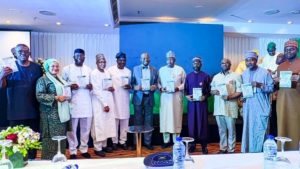
Book Launch: ‘Skills Rather than Just Degrees’
The event was chaired by the Executive Vice Chairman and Chief Executive Officer of the Nigerian Communications Commission (NCC), Prof. Umar Garba Danbatta with several top dignitaries across sectors in attendance including
the Chairman of the National Universities Commission, Professor Ayo Banjo; the National Commissioner of Nigeria Data Protection Bureau (NDPB), Dr. Vincent Olatunji; Director General of National Information Technology Agency (NITDA), Mallam Kachifu Inuwa Abdullahi; MD/CEO, Galaxy Backbone Limited, Prof. Muhammad Bello Abubakar, vice chancellors of universities, and the Egyptian Ambassador to Nigeria among several others.


